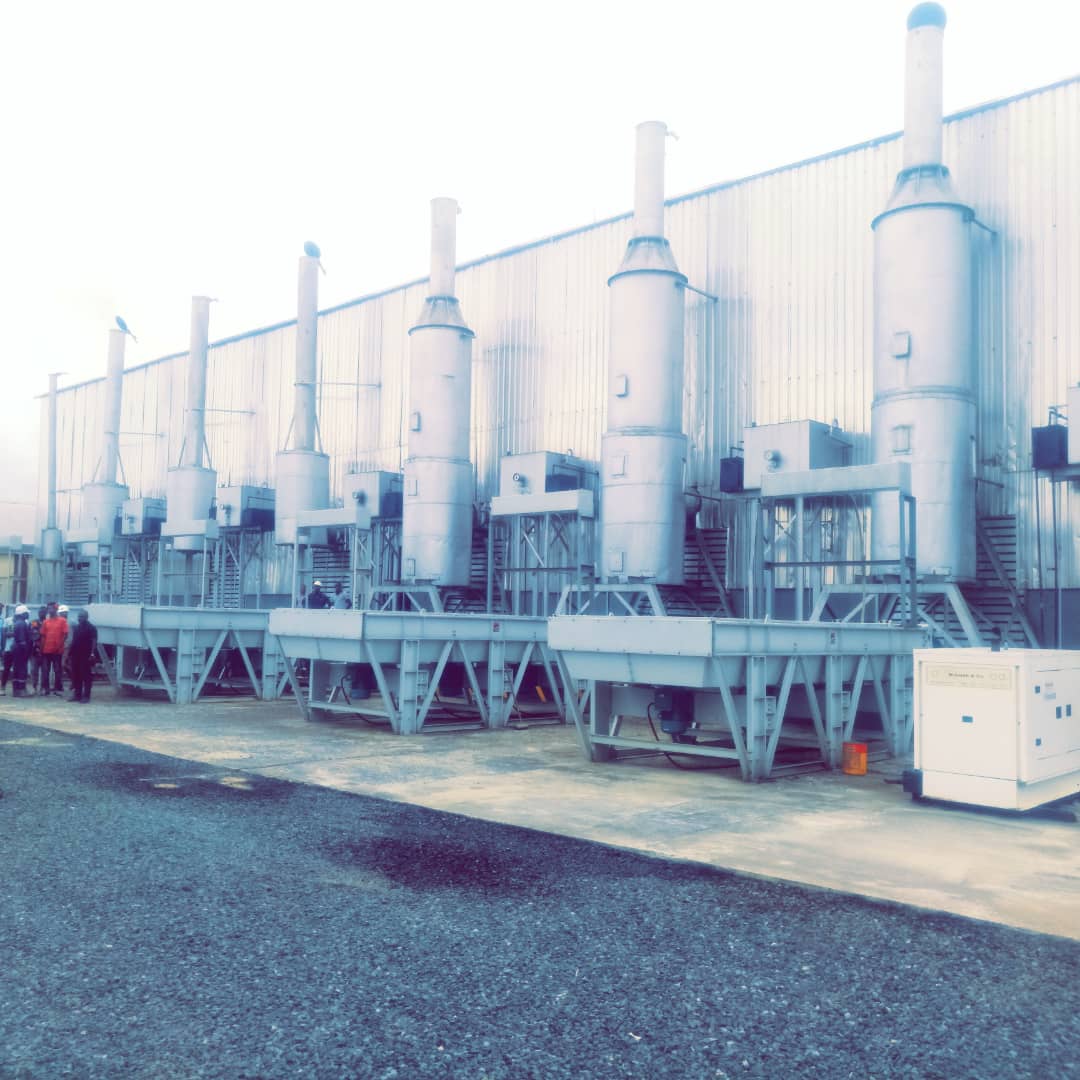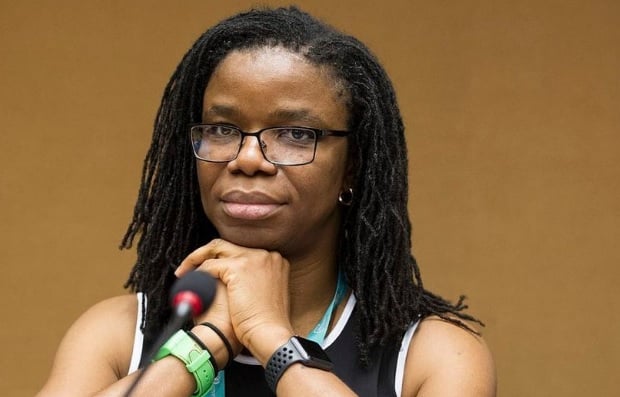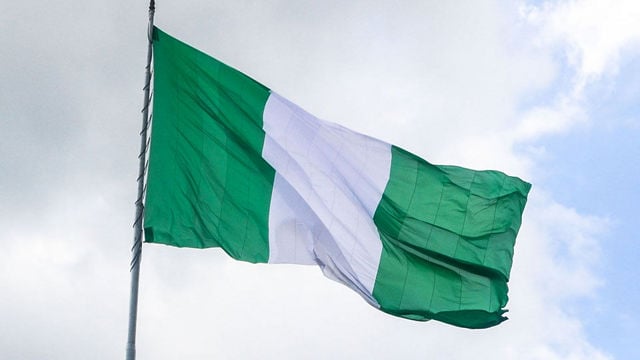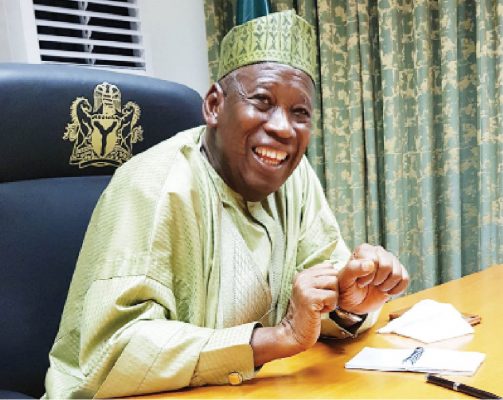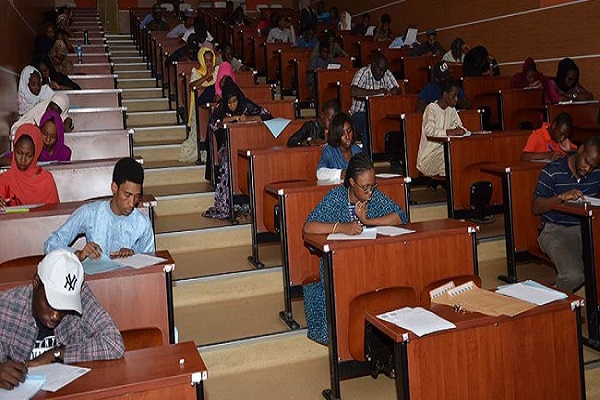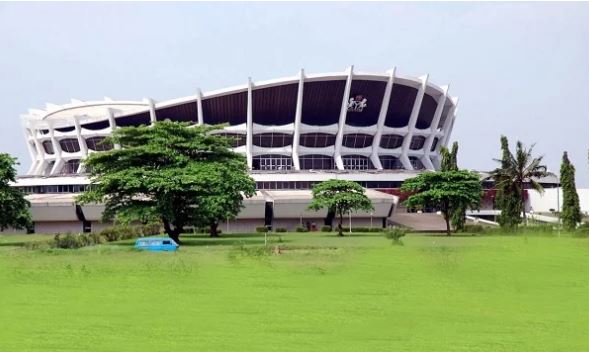Between 1988 and 1993, Alhaji Hamzat Rafindandi Zayyad (1937-2002) dominated the headlines in this country. He was in the news not because he was the first chartered accountant from the old Northern Nigeria. He became an accountant in 1963. He was in the news not because he was a mentor and godfather to many public officers especially from northern states including the current Governor of Kaduna state, Mallam Nasir El-Rufai, a surveyor, who has been elected twice as the Governor. Alhaji Hamzat was in the news because he was appointed by General Ibrahim Babangida, GCFR, in 1988 as head of the technical committee on Privatisation and Commercialisation in Nigeria.
He studied accountancy in Leeds While in Leeds he was very close to another Nigerian who also studied accountancy In Leeds at that time Olu Christopher Akindolire 85 the former managing director of Tate and Lyle sugar company who is now the Lisa of Idanre in Ondo State In the early 60 s Alhaji Zayyad was the best friend of major yakubu Gowon who later became head of state in 1966. He married Folashde Okuboye Maimanatu who bore him four kids one male three females. In June 1966, he was appointed chief accountant of the Northern Nigeria Produce Marketing Company, a central marketing agency for agricultural export produce. He was transferred from the position to Ahmadu Bello University later that year. He later rose in the field of finance to become the bursar of Ahmadu Bello University in 1968. From 1976 to 1981, he was the managing director of the New Nigeria Development Company (NNDC), an investment holding company. I knew him through Alhaji Gidado Idris, GCON, the late Secretary to the Government of the Federation. I once asked Alhaji Zayyad why he had a white linen wrapped with his cap, he replied, that he was a titled chief, the WAZIRI OF RAFINDADI in Katsina state, a title once held by his grandfather. He was a friend to so many including Oba Otudeko, the Guru in the First Bank.
In 1988, Privatisation bandwagon was a matter of Political and Economic ideology to raise revenue or reduce the cost of government. While Alhaji Zayyad was the chairman of the Privatisation Committee, the Secretary of the committee was Chief Omowale Kuye (1928-2015).
Some members of the committee included Chief Gbadebo Bisi Omidiora and Alhaji Shamsudeen Usman (71) who later became Nigeria’s Minister of Finance between June 2007 and 2009 and Minster of National Planning between 2009 to September 2013. It was Chief Kuye who recommended Chief Ernest Adegunle Oladeinde Shonekan (84), GCFR, then Chairman of UAC, to be a member of the committee. It was Chief Shonekan’s first Job in government. The committee became the launching pad of Chief Shonekan’s rise in government. When General Babangida dissolved the Armed Forces Ruling Council on January 5, 1993, he named Chief Shonekan, the Abese of Egbaland as a member of the governing council of the National Defence and Security Council. It was on that day the National Council of Ministers was replaced with a transitional council headed by Chief Shonekan. When General Babangida “stepped aside” on August 26, 1993, he made Chief Shonekan the Head of the Interim Government.
Advertisement
Chief Kuye handed over as Secretary to Mr. Bernard Beelor Amasetimin Veer from Mbakato in Benue state. Before his retirement in 1993, Chief Omowale Kuye was Permanent Secretary, budget. Chief Kuye, OFR, the Osi Olubadan, an economist and a lawyer was a sage. The activities of the committee were later transferred to the CABINET OFFICE for effective monitoring.
Eventually the committee came under the Ministry of Nigeria Enterprises and Promotion Board of which Dr. Chukwuemeka Ezeife (81), the Okwadike was Permanent Secretary. Dr. Ezeife was elected governor of Anambra State in Nigeria from January 1992 to November 1993 during the Nigerian Third Republic. He was a principal planning officer in the National Planning office under Chief Gilbert Obiajulu Chikelu (90), who was then the director. Other senior officers who worked under Chief Chikelu at that time in the 70 S were Chief Samuel Oluyemi Falae (81) (macroeconomics), Chief Evboyomwan Kenneth Oyegun (social services), Chief Fajobi, Remi Olowude, Gbenga Tiamiyu, Wole Okunfulire, Chief Ilugbuyi, Dr. S.O. Bababunmi, Chief J.O. Ayo, Boye Ilori, Mr. P.I. Adegbayo and others.
In 1986, the inefficiency of state owned enterprises became the launching pad of a global programme – Structural Adjustment Programme (SAP) with the main objective of ensuring efficient and effective resource allocation and utilization in Nigeria. Privatization was then adopted to achieve this objective and formed an integral part of the SAP. At that time, one hundred and eleven public institutions were listed for privatisation while thirty-four others were listed for commercialization. During the first phase of the privatization exercise which lasted from July 1988 till June 1993, about 88 government-owned enterprises were either fully or partially privatized jointly with foreign or private Nigerian investors. However, for basic industries with large capital requirements such as vehicle assembly plants, paper and steel mills and sugar and fertilizer companies, privatization proved challenging due to the financial insolvency and negative net assets of these entities. This first phase of the privatization programme had an absolutely positive outcome and succeeded in providing relief for government in financing public enterprises. In short the central government was not thinking of the gigantic unemployment the privatisation programme would bring about but the government was thinking in terms of the waste those moribund companies had become. In promulgating the Privatisation and Commercialisation decree of 1988, General Babangida later promulgated seven decrees. They are Securities and Exchange Commission, Decree 229, 1988, Nigeria Deposit Insurance Corporation, NDIC, Decree 1988, Revenue Mobilisation, Allocation and Fiscal Commission, Decree 49, 1989, Company and Allied Matters Act, CAMA, Decree 20, 1990, Banks and Other Financial Institutions, BOFI, Decree 25, 1991, Nigeran Export-Import Bank, NEXIM, Decree 38, 1991 and Nigeria Export Processing Zone, NEPZ,Decree 63, 1992.
Advertisement
The mandate given to AIhaji Zayyad was just to privatise. Alhaji Zayyad’s committee, later transformed to what we now know as the Bureau of Public Enterprises under General Abdusalam Abubakar, GCFR.
In 1993, the Technical Committee on Privatization and Commercialisation (TCPC) concluded its assignment and submitted a final report having privatized 88 out of the 111 enterprises listed in the decree. Based on the recommendation of the TCPC, the Federal Military Government promulgated the Bureau for Public Enterprises Act 1993 which repealed the 1988 Act and set up the Bureau for Public Enterprises (BPE) to implement the privatization programme in Nigeria. In 1999, the Federal Government enacted the Public Enterprise (Privatization and Commercialization) Act 1999 which created the National Council on Privatization under the chairmanship of the vice President, Alhaji Atiku Abubakar, GCON. The pioneer Director General of the Bureau For Public Enterprises was Mallam Nasir El-Rufai. Others who became the Director General include Mrs Nkechi Irene Chigbue, Mr. Benjami Ezra Dikki, Mrs Bolanle Onagoruwa and the present Director General, Dr. Alexander Ayoola Okoh from Edo state, who was appointed on April 13, 2017.
The functions of the council include: Making policies on privatization and commercialization, determining the modalities for privatization and advising the government accordingly, determining the timing of privatization of particular enterprises, approving the prices for shares and the appointment of privatization advisers, ensuring that the commercialized public enterprises are managed in accordance with sound commercial principles and prudent financial practices, Interfacing with the public enterprises, together with the supervising ministries, in order to ensure effective monitoring and safeguard of the managerial autonomy of the public enterprises.
The Act also established the Bureau of Public Enterprises (BPE) as the secretariat of the National Council on Privatization. The functions of the bureau include: Implementing the council’s policy on privatization and commercialization, preparing public enterprises approved by the council for privatization and commercialization, advising council on further public enterprises that may be privatized or commercialized, advising council on capital restructuring needs of the public enterprises to be privatized, ensuring the update of accounts of all commercialized enterprises for financial discipline, making recommendations to the council in the appointment of consultants, advisers, investment bankers, issuing houses, stockbrokers, solicitors, trustees, accountants and other professionals required for the purpose of either privatization or commercialization, ensuring the success of the privatization and commercialization exercise through effective post transactional performance monitoring and evaluation and Providing secretarial support to the council.
When President Olusegun Obasanjo, GCFR, took over in 1999, the central government owned a total of 590 Public Enterprises (PEs). The government controlled most of the petroleum, minerals, development banking, telecommunications (fixed line), power and steel sectors of the economy. These sectors alone constituted at least 40 per cent of the entire National GDP. It is instructive to note that over one-third of the money the country realized from the sale of oil since 1973 has been expended on PEs. Estimates of the Vision 2010 Committee indicate that the Federal Government’s investments in public enterprises stood at over US$100 billion in 1996. It was also estimated that about 55 per cent of Nigeria’s external debts with the Paris Club of Creditors were due to funds sourced to establish these public enterprises. However, the return on these investments averaged less than 0.5 percent per annum. According to the Technical Committee on Privatisation and Commercialisation survey, public enterprises accounted for between 30 and 40 percent of fixed capital investments and nearly 50 percent of normal sector employment. Yet, the PEs engaged in economic activities employing only about 400,000 people.
Advertisement
Data obtained from various government departments and estimates revealed that in 1998, Nigerian PEs enjoyed about N265billion in transfers, subsidies and waivers, which could have been better invested in the country’s educational, health and other social sectors. Government’s response to these problems in the past was the setting up of one form of public commission and study group or the other on the performance of the public Enterprises. Their findings usually concluded that the Public Enterprises were infested with problems such as: abuse of monopoly powers, defective capita structures resulting in heavy dependence on the treasury for funding, bureaucratic bottlenecks, mismanagement, corruption and nepotism. Thus the broad objectives and benefits of Nigeria’s privatisation programme included: liberalization of the economy making the private sector “the engine of growth”, others were to: rehabilitate dead or moribund enterprises, promote efficiency and better management, create employment opportunities, reduce corruption and parasite mentality, modernize technology in our industries, strengthen capital markets, dismantle monopolies and remove service arrogance, reduce debt burden and fiscal deficits, resolve massive and perennial pension funding gaps, broaden ownership base and create popular capitalism, generate funds to government for investment in social sectors-education, health, security, etc, promote transparency in corporate governance, attract foreign investment and positive re-imaging and attract back flight capital into Nigeria.
If we are to go with the 2004 phase three of the Privatisation programme, by now the Nigeria Ports Authority, the Nigeria Railway Corporation and the Nigerian National Petroleum Corporation and their subsidiaries should have been privatised.
The privatization of enterprises had scheduled under the first phase was completed between 1999 and 2003. These were commercial and merchant banks, cement companies that were already quoted on the Stock Exchange. These enterprises which were divested through public offers or a combination of public offer and core investor sale were: NAL Merchant Bank, International Merchant Bank (IMB), FSB International Bank, Unipetrol, African Petroleum (AP), Assurance Bank, National Oil and Chemical Company Plc. (NOLCHEM), West African Portland Cement Co (WAPCO), Ashaka Cement Co. Plc (Ashaka Cem), Northern Nigerian Cement Company Plc (NNCC) and Benue Cement Company (BCC).
The second phase was concerned with public enterprises engaged in sectors where the prices of their respective output/services were largely market-determined. A number of enterprises in this phase have either been fully privatized or partially privatized through sales to strategic/core investor groups and offer to the investment public on the floor of the Nigerian Stock Exchange. These included: Festac 77 Hotel, Nigerdock Limited, Assurance Bank Nigerian Ltd, Electric Meter Company of Nigeria (EMCON), Calabar Cement Company Ltd. (CALCEMCO), Nigeria Cement Company Plc. (NIGERCEM), Savannah Sugar Company Ltd., National Truck Manufacturers, Kano, Nigerian Re-insurance Corporation, Niger Insurance Plc, Capital Hotel Plc. (Owners of Sheraton Hotel and Towers, Abuja), Daily Times of Nigeria Plc., Ore-Irele Oil Palm, Leyland Nigeria and Ihechiowa Oil Palm. Others are Central Packages Company Ltd., Afribank Plc, 4 nos. Bricks and Clay Companies (Subsidiaries of Nigerian Mining Corporation), Concession of Nigerian Ports (Lagos and Port- Harcourt Terminal), NICON Insurance Corporation, NICON Hilton Hotel, Nigerian Aviation Company, Nigeria Unity Line, Ayip Eku Oil Palm, Steyr Nigeria Limited, Eleme Petrochemical Company Limited, Federal Superphosphate Fertilizer Company, Kuru Quarry, Jos and Volkswagen Nigeria Limited was sold.
Delta Steel Company Ltd was sold in February 2005 with gross proceeds of $30million dollars. Other enterprises that were sold were National Trucks Manufacturers, Kano, sold in April 2005 with a gross proceeds of $3.01 million dollars, Leyland Nigeria Limited, sold in 2005 at a proceed of N274 million naira, Central Packaging Limited (June 2005) at a proceed of N141million naira, Ikorodu Bricks (June 2005) at a proceed of N310million naira, Ibadan Bricks and Clay (June 2005) at a proceed of N175million, Enugu Bricks and Clay(June 2005) at a proceed of N50million naira, Ihechiowa Oil Palm (July 2005) at a proceed of N34million naira, Afribank Plc (June 2005) at a proceed of N5.1 billion naira, Calabar Cement Company Ltd. (August 2002) at a proceed of N216million naira, Niger Insurance Plc (December 2002) at a proceed of N622million naira, Festac 77 Hotel (January 2002) at a proceed of N1.01 billion naira, Central Hotel, Kano(July 2004) at a proceed of N642.5million, Savannah Sugar Company Ltd. (December 2002) at a proceed of N1.35 billion naira, Nigeria Reinsurance Corporation(December 2002) at a proceed of N1.01 billion naira, Daily Times of Nigeria Plc(June 2004) at a proceed of N1.25billion naira, Ore-Irele Oil Palm (September 2004) at a proceed of N166.02million naira, Osogbo Steel Rolling Company Limited (November, 2005) at a proceed of N2.61 billion naira, Katsina Steel Rolling Mill(November 2005) at a proceed of N335million naira, Steyr Nigeria Limited (December, 2005) at a proceed of N800milion naira, Nigerdock Nigeria Limited (December 2001) at a proceed of 3.4billion naira, Assurance Bank Nigeria Plc (March 2002) at a proceed of N853.2million, FSB International Bank Plc. (April 2001) at a proceed of N1.65 billion naira and NAL Merchant Bank Plc. (April 2001) at a proceed of N1.42 billion naira.
Advertisement
The Central Government did not name investors that bought FSB International Bank Plc., NAL Merchant Bank Plc., International Merchant Bank Plc, Cement Company of Northern Nigeria, Nigeria Hotels Limited, Ikoyi Hotel Limited and many other companies which bring up the question of transparency. The larger question is, of what have we benefitted from the privatization programme as a people. Events have proved that private ownership does not necessarily translate to improved efficiency. Even the present Director Generla of Public Enterprises Bureau, Dr Okoh on February 22, 2018 disclosed in Abuja, that 37 percent of the 152 privatised enterprises were non performing. Dr. Okoh attributed the poor performance of the enterprises to the challenging, operating business environment in Nigeria, which he said had made it difficult for many businesses to survive, while many private or privatized public enterprises have either closed down or relocated to neighbouring countries.
There is no doubt that between 1999 and 2006, the Central government made a large undisclosed huge money through Privatisation. For example, 150 billion naira was realized from privatization proceeds through the sale of NITEL AND NIGERDOCK alone. The proceeds go into the sales of Assets Account as an independent revenue from where it goes into the Consolidated Revenue Funds of the Federal Government for the funding of the Federal budget. The states and the Local governments don’t benefit from it. I recall that the argument of the Federal Government has always been to the effect that the investments/projects were financed from its own share from the Federation Account.
Advertisement
According to the PREMIUM TIMES, the Central Government wants to sell the following—Yola Electricity Distribution Company, Mineral House, Lagos, Zungeru Hydro Power, Conclusion of Afam Power and Afam three Fast Power Limited, Geregu Power (20% shareholding sale), Nigerian National Integrated Power Project, Transmission Company of Nigeria, Refineries, NIPOST Restructuring and Modernisation, Nigerian Film Corporation, The Abuja Environmental Protection Board (AEPB), Nigeria Hotels (in liquidation), NITEL/MTEL Residual issues, Abuja Water Board, FG’s Shares in Sales Sugar Company, International Conference Centre, River Basin Development Authority, Tafawa Balewa Square, Lagos International Trade Fair Complex, Restructuring of FMBN/FHA and Bank of Agriculture.
A lot of jobs have been lost through this privatization programme and millions of people have been thrown in the unemployment market. Some of these companies privatized were established by loans procured by the Central government on behalf of the government and people of Nigeria and it is the people of Nigeria that have to repay the loans. Of what benefit has this Privatisation programme been to the people of Nigeria and what impact.
Advertisement
I think the privatization programme was just an opportunity by the Central Government to allow very few individuals to buy our COMMONWEALTH at give away prices. They used our money through their authority, position, contacts and influence to buy our COMMONWEALTH for themselves. Some of the sale of these companies is shrouded in secrecy. Those who benefitted are quick to defend the Privatisation programme with sound arguments the way exploiters defend their actions. As usual, helpless as we are, there is nothing we can do about it.
Advertisement
Views expressed by contributors are strictly personal and not of TheCable.
Add a comment

